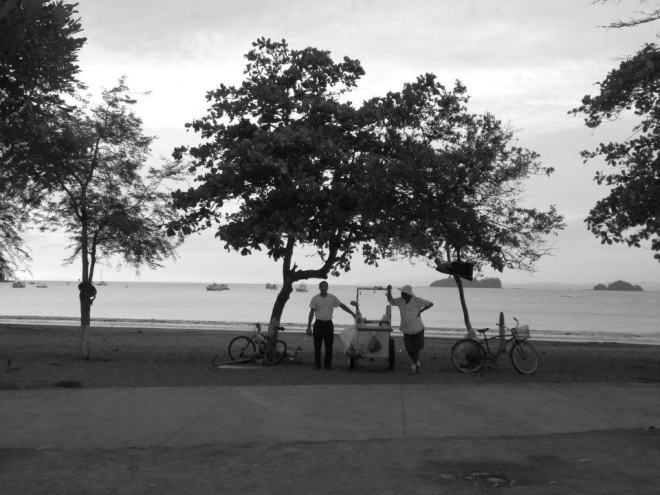Your flight to your next dive destination is just about to take off. The steward begins the standard stony-faced safety briefing that’s both boring and robotic in nature. It’s also the same briefing whether you’re flying 15 hours to Norway in winter or 3 hours to California in Summer. If you’ve flown frequently you’ve heard it all before.
Scuba diving briefings should be treated extremely differently. Water conditions, surface conditions, dive buddies and individual dive sites are all extremely varied and therefore no safety procedures are exactly the same. Even if you have more than 50 dives and you dived in the same spot 2 years ago.
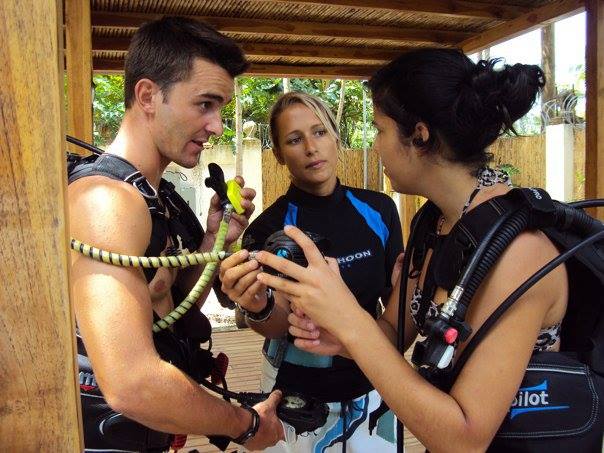
Variables include current, depth, areas of danger, points of interest, emergency procedures, dive site topography, regulations… the list continues. For example; our dive at Gordo Banks is an advanced deep, drift dive. It’s vital to listen to the guide’s advice about how to stay together while descending. This information is not necessary when diving from shore or with a line.
A dive briefing isn’t the time to adjust your weight belt, start up a conversation with your dive buddy or go looking for mask defog.
The following points are discussed in a dive briefing:
Dive Site Name
Keep a note for your log book.
Site description
Is given to help divers know what to expect such as bottom topography and resident wildlife. This can help orientate a diver in case they get separated.
The Role of the Dive Guide and Communication Devices.
Everybody looks similar underwater and things can get confusing on a busy dive site. Find something distinctive in your guide or buddy – fins are a good one.
Entry and Exit Techniques
These techniques will vary boat to boat and in different weather conditions. Maybe you’ll need to remove fins first or maybe you need to remove all of the equipment in the water starting with weights first. Listen to recommended practices from your guide , they will know the best port of call.
Dive Procedures
Buddy checks, how to stay together in the water and where to make safety stops, ascents and descents.
Emergency Procedures
If you get lost the PADI training standards are: wait for one minute and head to the surface. But perhaps your guide will want to add to this depending on dive site. For example in Cabo San Lucas there is boat traffic near the dive site and so additional safety procedures are necessary.
Signal Review Specific to the Dive
In addition to the usual signals there are hand signals for aquatic life, for deep diving techniques and techniques relevant to the dive objective.
Roster and Buddy Check
If you visit the popular dive areas of the world, such as Thailand or Cozumel, you may well be on a large boat with 40 other divers. Make sure your name is on the roster! The buddy check is important after your certification as now you are responsible for your equipment and your dive planning.
Environmental Orientation
The underwater world in delicate and fragile. It’s also under threat from pollution, global warming and diver interaction. Don’t be that diver. Please don’t touch anything and watch your buoyancy control.
Pre-dive Safety Check
Look at your buddy and check the following:
BCD (does it inflate and deflate without leaks, where are the dump valves?)
Weights (are they in a the right-hand quick release position? Where are the trim weights?)
Releases (where are the clips of your buddy’s BCD that can be released in an emergency)
Air (Is the air on? Can you locate the Alternate easily?)
Final Check! Enjoy your dive!
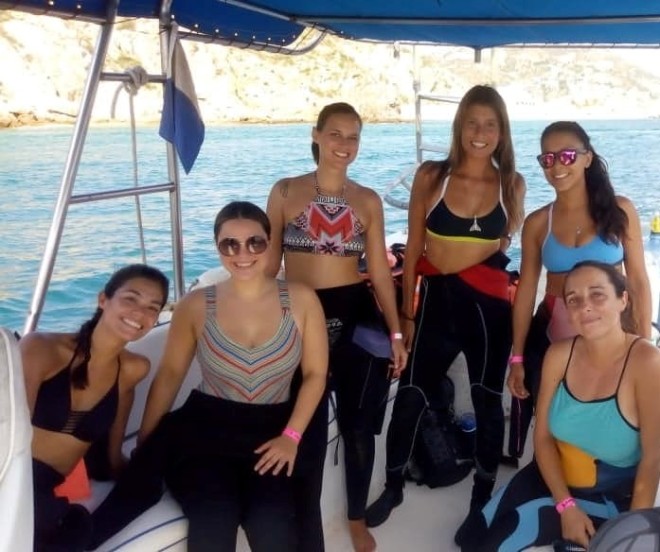


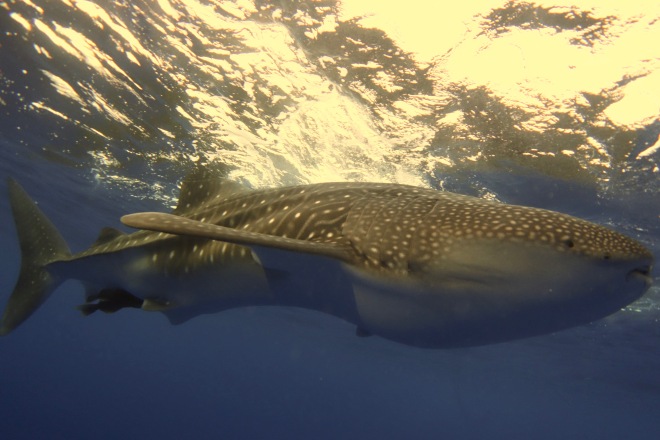
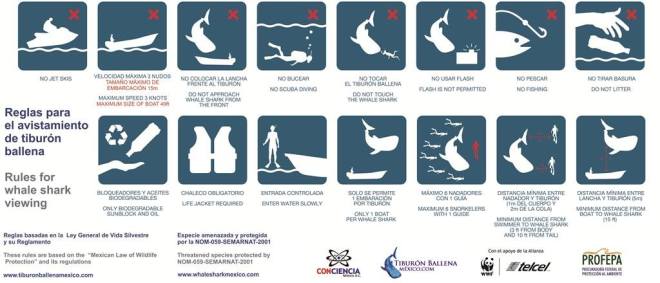

 I’d packed up and left my
I’d packed up and left my 


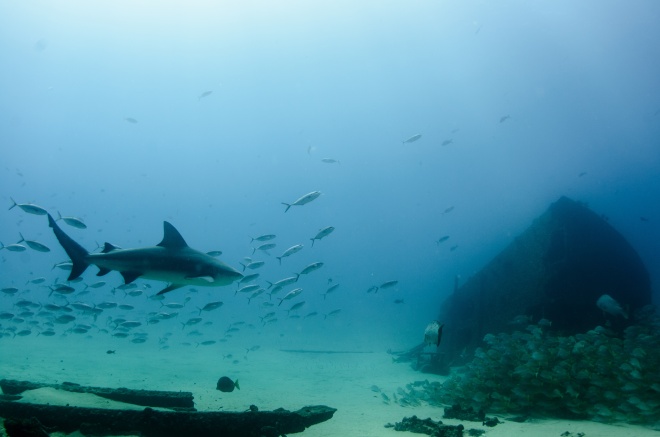
 The travel thirst was not completely quenched. I was ready to move on after another fun-filled year of new friends, new experiences and new qualifications. I applied for a job in
The travel thirst was not completely quenched. I was ready to move on after another fun-filled year of new friends, new experiences and new qualifications. I applied for a job in 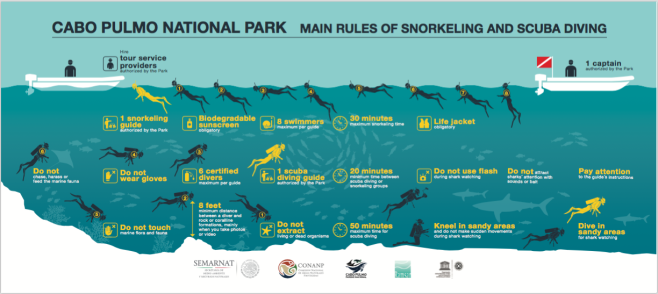

 Some mornings I would do yoga on my roof terrace and only the sounds of the birds chirping to the upcoming sunrise would be heard. Well, sometimes also to be heard was the sound of one consistently stupid cardinal repeatedly flying head first into my window because, I assume, he wanted something in my house and couldn’t see the glass. Idiot. Where was I? Oh yes. Wild horses roamed my garden, humming birds pollunated the trees and quail families pecked at the ground outside my house. Scorpions DID fall out of my rooftop into my bed and rattle snakes DID wait outside my back gate. But you have to take the rough with the smooth. After ‘working’ with some of the most amazing underwater wildlife encounters during the day the evenings were spent in nature: either surfing, hiking or having bonfires.
Some mornings I would do yoga on my roof terrace and only the sounds of the birds chirping to the upcoming sunrise would be heard. Well, sometimes also to be heard was the sound of one consistently stupid cardinal repeatedly flying head first into my window because, I assume, he wanted something in my house and couldn’t see the glass. Idiot. Where was I? Oh yes. Wild horses roamed my garden, humming birds pollunated the trees and quail families pecked at the ground outside my house. Scorpions DID fall out of my rooftop into my bed and rattle snakes DID wait outside my back gate. But you have to take the rough with the smooth. After ‘working’ with some of the most amazing underwater wildlife encounters during the day the evenings were spent in nature: either surfing, hiking or having bonfires.

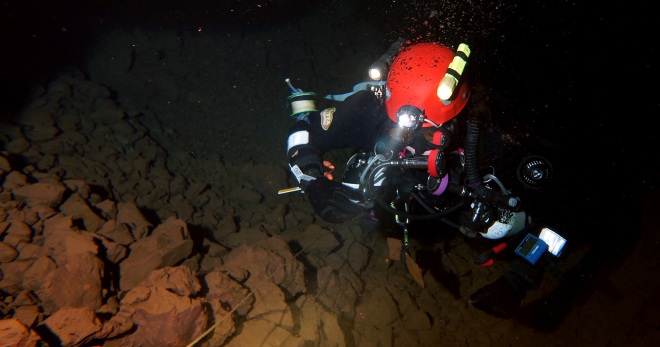 Sixteen whole days. Sixteen days in darkness. More than two weeks with little food and water trapped in a flooded cave and only the sounds of 12 other people in the same nightmare can be heard. At the time of writing the rescue effort is underway but oxygen levels are dropping and the heroes that gathered on the surface have no choice but to pick up their pace.
Sixteen whole days. Sixteen days in darkness. More than two weeks with little food and water trapped in a flooded cave and only the sounds of 12 other people in the same nightmare can be heard. At the time of writing the rescue effort is underway but oxygen levels are dropping and the heroes that gathered on the surface have no choice but to pick up their pace. What’s happening in Thailand is a rescue dive operation on a whole new level. I’m no cave diver, nor technically trained, but I am vastly experienced in taking non -traumatised, nourished beginners on their first ever dive. I understand, as a
What’s happening in Thailand is a rescue dive operation on a whole new level. I’m no cave diver, nor technically trained, but I am vastly experienced in taking non -traumatised, nourished beginners on their first ever dive. I understand, as a 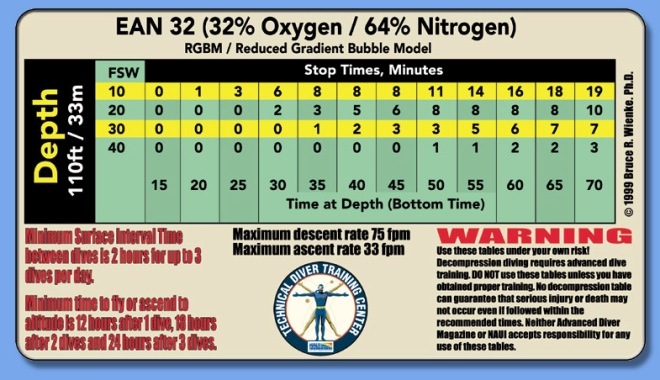
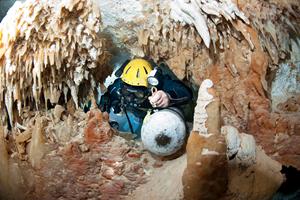 Rescuers need to ‘stage’ or a place spare tanks along the way so that they have enough air. Preserving air is a big issue and staying calm is imperative: increased heart rate means faster breathing. Divers must don all tanks and equipment so that it can be streamlined or pushed ‘easily’ through small passages in front of them as they go.
Rescuers need to ‘stage’ or a place spare tanks along the way so that they have enough air. Preserving air is a big issue and staying calm is imperative: increased heart rate means faster breathing. Divers must don all tanks and equipment so that it can be streamlined or pushed ‘easily’ through small passages in front of them as they go.
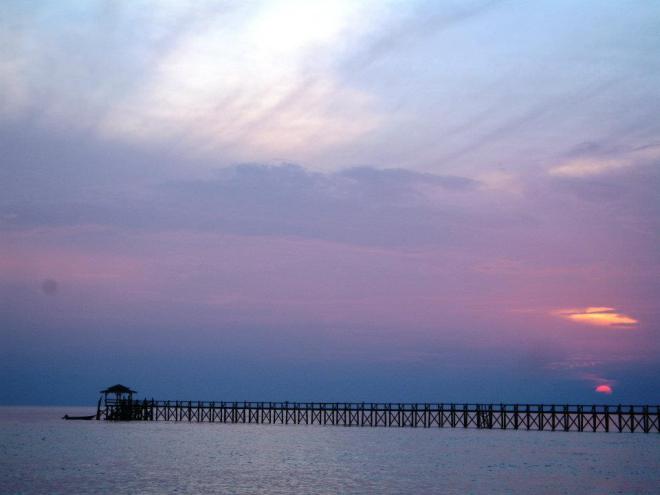
 Dedicated to Roxanne Hillier
Dedicated to Roxanne Hillier
 I settled into my much quieter home fairly quickly although the first week I felt like an exhibition piece as the Malays tended to watch everything I did quite closely. Personal boundaries are different here; Malays have no problem telling you about any weight you’ve gained or lost and have no reservation asking intrusive questions about how much money you earn. ‘Why do you have such a big zit on your face today?’ ‘I’m not too sure my inquisitive friend, but thanks for caring’. Because of this no-boundaries attitude I often had somebody sitting opposite me just staring at me eating my food in my first few weeks. The only other western face for the first few months was the owner and luckily we gelled straight away.
I settled into my much quieter home fairly quickly although the first week I felt like an exhibition piece as the Malays tended to watch everything I did quite closely. Personal boundaries are different here; Malays have no problem telling you about any weight you’ve gained or lost and have no reservation asking intrusive questions about how much money you earn. ‘Why do you have such a big zit on your face today?’ ‘I’m not too sure my inquisitive friend, but thanks for caring’. Because of this no-boundaries attitude I often had somebody sitting opposite me just staring at me eating my food in my first few weeks. The only other western face for the first few months was the owner and luckily we gelled straight away. So far underwater has been awesome. I now have a new favourite dive. I was leading 2 students on only their third open water dive at Jahat Island, just 10 minutes away from the resort. The water was clear, blue and teaming with fish. Making my usual way 20 meters down to a coral rock to find the schools of barracuda, jacks or bat fish that often swarm here, I was suddenly aware of a dark shadow above me. My students were happily Finding Nemo as the huge looming outline of an 8 meter shark came in to focus; escorted by other smaller fish catching a ride in the slip stream. A whale shark.
So far underwater has been awesome. I now have a new favourite dive. I was leading 2 students on only their third open water dive at Jahat Island, just 10 minutes away from the resort. The water was clear, blue and teaming with fish. Making my usual way 20 meters down to a coral rock to find the schools of barracuda, jacks or bat fish that often swarm here, I was suddenly aware of a dark shadow above me. My students were happily Finding Nemo as the huge looming outline of an 8 meter shark came in to focus; escorted by other smaller fish catching a ride in the slip stream. A whale shark. As I splashed around in my fins I looked down to see the familiar sight of a reef shark, maybe only 1 and half meters in length, similar to those I have dived with many times. I thought nothing else of it as I started swimming again. Another minute passed and I saw the shark again, only this time it was swimming a little shallower. I wasn’t worried at this point because this is a black tip reef shark; no recorded attacks on humans have ever been made except understandably when spear fishermen attach their bleeding catch to the nets in their belts.
As I splashed around in my fins I looked down to see the familiar sight of a reef shark, maybe only 1 and half meters in length, similar to those I have dived with many times. I thought nothing else of it as I started swimming again. Another minute passed and I saw the shark again, only this time it was swimming a little shallower. I wasn’t worried at this point because this is a black tip reef shark; no recorded attacks on humans have ever been made except understandably when spear fishermen attach their bleeding catch to the nets in their belts. The months spent here have proven it is possible to continue to gain valuable employ-ability whilst living out of a backpack. I can now add 8 months of management experience to my CV. In addition, I’ve felt more at home with the local people here than anywhere else so far and I’m surprised that, as an annoying and outspoken radical feminist with strong atheist beliefs, my only Muslim home has given me that.
The months spent here have proven it is possible to continue to gain valuable employ-ability whilst living out of a backpack. I can now add 8 months of management experience to my CV. In addition, I’ve felt more at home with the local people here than anywhere else so far and I’m surprised that, as an annoying and outspoken radical feminist with strong atheist beliefs, my only Muslim home has given me that. But, I’m tired. I have been doing a physically demanding job for almost 3 years with no guaranteed days off and without insurance plans, benefits or bonuses. I have had 4 ear infections in the past 8 months; even now as I write this a neck lymph node is screaming at me to just sit down and have a cup of tea. The recurring negative to this lifestyle is that I miss being with likeminded people and having a stable crowd of friends that remain in my living space for more than 6 months. You can be surrounded by people but still feel lonely.
But, I’m tired. I have been doing a physically demanding job for almost 3 years with no guaranteed days off and without insurance plans, benefits or bonuses. I have had 4 ear infections in the past 8 months; even now as I write this a neck lymph node is screaming at me to just sit down and have a cup of tea. The recurring negative to this lifestyle is that I miss being with likeminded people and having a stable crowd of friends that remain in my living space for more than 6 months. You can be surrounded by people but still feel lonely.

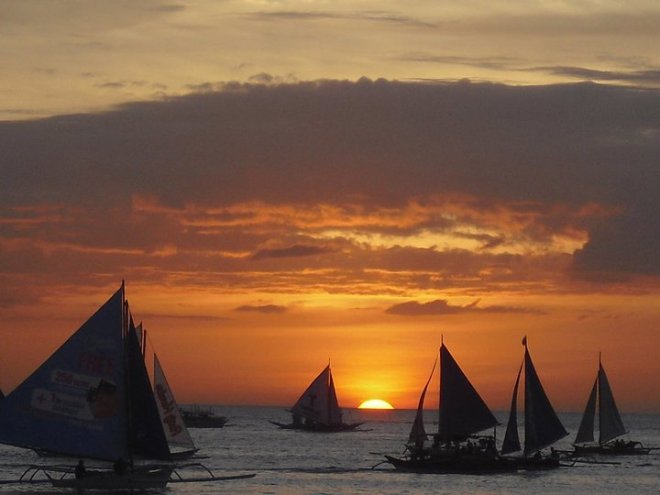
 The Philippines conjures images in my mind of beaches and sunsets similar to the default wallpaper background on Windows 7; turquoise water, swaying palm trees and cloudless skies.
The Philippines conjures images in my mind of beaches and sunsets similar to the default wallpaper background on Windows 7; turquoise water, swaying palm trees and cloudless skies. Boracay Island is just like this and is called the ‘Jewel’ of the archipelago. I landed myself a job here thanks to a friend’s recommendation. After a long journey in the air I boarded the last banka ferry from the main island across the stunningly clear blue water and finally onto Boracay pier. Sparse white sand on concrete beneath my feet hinted at paradise just around the corner.
Boracay Island is just like this and is called the ‘Jewel’ of the archipelago. I landed myself a job here thanks to a friend’s recommendation. After a long journey in the air I boarded the last banka ferry from the main island across the stunningly clear blue water and finally onto Boracay pier. Sparse white sand on concrete beneath my feet hinted at paradise just around the corner. The job was in a small dive shop on the front of the beach but I later migrated to the 5* Shangri La hotel because, apart for obvious 5* reasons, I preferred the pace of work. The first job involved starting later in the morning but having to work into the late evening, very much working on pure commission basis and so there was always a competitive pressure amongst the instructors to find customers. The second job in the hotel was more laid back and I finished at 5pm: the only complaint being the early starts. But whatever, it is paradise after all.
The job was in a small dive shop on the front of the beach but I later migrated to the 5* Shangri La hotel because, apart for obvious 5* reasons, I preferred the pace of work. The first job involved starting later in the morning but having to work into the late evening, very much working on pure commission basis and so there was always a competitive pressure amongst the instructors to find customers. The second job in the hotel was more laid back and I finished at 5pm: the only complaint being the early starts. But whatever, it is paradise after all.
 For the diving enthusiasts: underwater is all macro or small aquatic life such as; sea horses, pipe fish, snakes, nudibranch, frog fish, eels and octopi among the usual fish families of the tropics. I have seen only two sharks, two eagle rays, a few napoleon wrasse and a handful of turtles since I came here. Costa Rica is still my favourite because of the big fish. Boracay has, however, consistently decent visibility and is home to the most beautiful soft coral reef I have ever seen at the time of writing. The Boracay ocean often throws in some surprises on a lucky day so this and the decent wreck dive kept my interest.
For the diving enthusiasts: underwater is all macro or small aquatic life such as; sea horses, pipe fish, snakes, nudibranch, frog fish, eels and octopi among the usual fish families of the tropics. I have seen only two sharks, two eagle rays, a few napoleon wrasse and a handful of turtles since I came here. Costa Rica is still my favourite because of the big fish. Boracay has, however, consistently decent visibility and is home to the most beautiful soft coral reef I have ever seen at the time of writing. The Boracay ocean often throws in some surprises on a lucky day so this and the decent wreck dive kept my interest. Spending a year on an Island not longer than 7km and no wider than 1km meant a break was needed after 6 months to avoid island fever. Yes, you actually get the desire to leave paradise to check the rest of the world still exists. So after low season I quit my job and went traveling around the Visayan region of the Philippines. I’d also arranged to do some voluntary work near Manila after a 3 week holiday.
Spending a year on an Island not longer than 7km and no wider than 1km meant a break was needed after 6 months to avoid island fever. Yes, you actually get the desire to leave paradise to check the rest of the world still exists. So after low season I quit my job and went traveling around the Visayan region of the Philippines. I’d also arranged to do some voluntary work near Manila after a 3 week holiday.
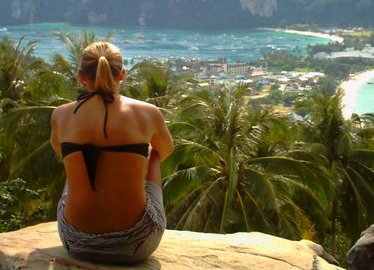
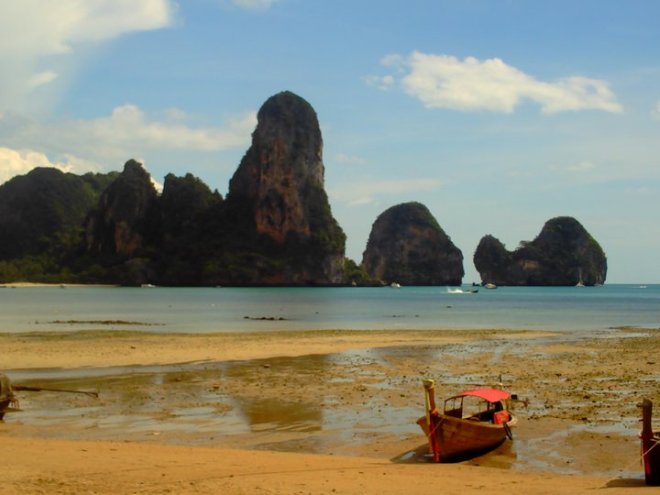 I reached the infamous Backpackers paradise of Koh San Road and rested up for the night for I would be doing a 17 hour bus journey the next day. I needed a proper rest. I am not the backpacker I used to be. 24 hours later I was in a long tail boat rounding the corner of some impressive lime stone cliffs to our next destination where I would have a few days rest before traveling on to Koh Phi Phi: X bay.
I reached the infamous Backpackers paradise of Koh San Road and rested up for the night for I would be doing a 17 hour bus journey the next day. I needed a proper rest. I am not the backpacker I used to be. 24 hours later I was in a long tail boat rounding the corner of some impressive lime stone cliffs to our next destination where I would have a few days rest before traveling on to Koh Phi Phi: X bay. So far in Thailand I had seen more development of the tourism industry than I care to count. The longtail boat drivers are now organized businesses complete with t-shirt uniforms. Ferry staff, not only have uniforms, but they hand out menus and have a knack for customer service; there is actually designated space for luggage on the boat! It no longer has the same charming ineptitude as it had before and I instantly regretted spoiling the memory of 2003 by coming back. Therefore, if anyone actually reads this account of my life and somehow I am responsible for encouraging mass tourism in X bay I will not forgive myself. So it goes unnamed.
So far in Thailand I had seen more development of the tourism industry than I care to count. The longtail boat drivers are now organized businesses complete with t-shirt uniforms. Ferry staff, not only have uniforms, but they hand out menus and have a knack for customer service; there is actually designated space for luggage on the boat! It no longer has the same charming ineptitude as it had before and I instantly regretted spoiling the memory of 2003 by coming back. Therefore, if anyone actually reads this account of my life and somehow I am responsible for encouraging mass tourism in X bay I will not forgive myself. So it goes unnamed. As we came in to dock in the small channel that ran down to the side of the beach there were rock climbers hanging all over the imposing cliffs. The beach was rugged and pristine. Hammocked bars and coffee shops littered the beach village (a Thailand standard for any 2003 backpacker which now seems to have disappeared) and the jungle reached from the beach to the mountains behind. You could only reach this place by boat unless you were handy with a machete and enjoyed exploring jungles while mosquito’s feed off your ankles.
As we came in to dock in the small channel that ran down to the side of the beach there were rock climbers hanging all over the imposing cliffs. The beach was rugged and pristine. Hammocked bars and coffee shops littered the beach village (a Thailand standard for any 2003 backpacker which now seems to have disappeared) and the jungle reached from the beach to the mountains behind. You could only reach this place by boat unless you were handy with a machete and enjoyed exploring jungles while mosquito’s feed off your ankles. Everyone knows that Phi Phi suffered hugely in the 2004 Tsunami. Since this time they have rebuilt the infrastructure to an uncharacteristically superficial level and now the only bamboo huts I found were equipped with all mod cons and rent stood at about $30 a night. Actually that’s a lie, I found one for $12 at the back of a beach bar that played Europop until 4am every night, had one tiny fan and not enough room for the door to open fully or enough height to stand up in completely. And I’m 5 foot 2. The Island itself now had various ‘pubs’ boasting hourly viewings of ‘The Inbetweeners’ and ‘Family Guy’ to watch with your Full English Breakfasts or Sunday roast dinners.
Everyone knows that Phi Phi suffered hugely in the 2004 Tsunami. Since this time they have rebuilt the infrastructure to an uncharacteristically superficial level and now the only bamboo huts I found were equipped with all mod cons and rent stood at about $30 a night. Actually that’s a lie, I found one for $12 at the back of a beach bar that played Europop until 4am every night, had one tiny fan and not enough room for the door to open fully or enough height to stand up in completely. And I’m 5 foot 2. The Island itself now had various ‘pubs’ boasting hourly viewings of ‘The Inbetweeners’ and ‘Family Guy’ to watch with your Full English Breakfasts or Sunday roast dinners. I finally stumbled on work selling try-dives in a hotel pool in between guiding dives. My relief at finding work was quickly replaced with frustration after my first day; I was a new instructor and I wanted to be working in the ocean.
I finally stumbled on work selling try-dives in a hotel pool in between guiding dives. My relief at finding work was quickly replaced with frustration after my first day; I was a new instructor and I wanted to be working in the ocean. Work began the day after I arrived and I was really happy to learn that I would still be diving at Koh Phi Phi as well as Krabi’s local Islands. Contrary to the rest of the Island, Island Phi Phi under water is fabulous.
Work began the day after I arrived and I was really happy to learn that I would still be diving at Koh Phi Phi as well as Krabi’s local Islands. Contrary to the rest of the Island, Island Phi Phi under water is fabulous.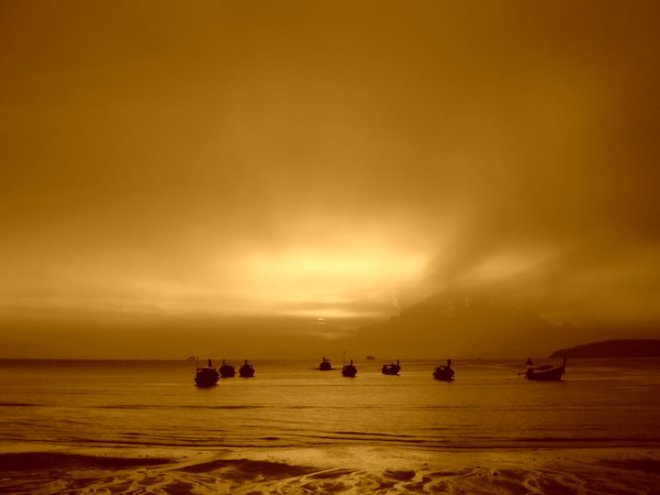
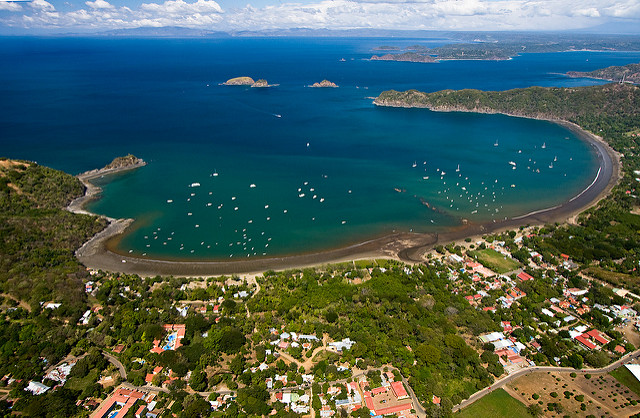
 The diving could be utterly spectacular when visibility reached 20-25 meters. Not a wow factor by measures of other tropical climes but the big animal life in west coast Costa Rica is abundant and rivals any pristine reef in the Asian coral triangle in terms of jaw dropping nature.
The diving could be utterly spectacular when visibility reached 20-25 meters. Not a wow factor by measures of other tropical climes but the big animal life in west coast Costa Rica is abundant and rivals any pristine reef in the Asian coral triangle in terms of jaw dropping nature.
 The town above water was green and tropical. Fireflies lit up the small jungle paths behind our houses. Throaty frogs croaked their songs in gutters below the streets, howler monkeys noisily whooped and growled in the branches above the sports bar during post dive drinks, crocodiles lived under a bridge by a ravine and a man made money feeding them chickens as bemused tourists watched on. Sometimes we went and caught fish at the beach for our supper. We even had a resident tarantula. Sometimes the urban world we live in is suffocating and to live in beautiful Costa Rica is good medicine for the soul.
The town above water was green and tropical. Fireflies lit up the small jungle paths behind our houses. Throaty frogs croaked their songs in gutters below the streets, howler monkeys noisily whooped and growled in the branches above the sports bar during post dive drinks, crocodiles lived under a bridge by a ravine and a man made money feeding them chickens as bemused tourists watched on. Sometimes we went and caught fish at the beach for our supper. We even had a resident tarantula. Sometimes the urban world we live in is suffocating and to live in beautiful Costa Rica is good medicine for the soul. I loved it so much I stayed and progressed to dive instructor. I didn’t want to leave. Costa Rica was always going to be seen through rose tinted spectacles: the first few months away from home, I was still quenching the thirst of adventure and I was living the dream of getting paid to dive with sharks, dolphins, whales and new unknown creatures.
I loved it so much I stayed and progressed to dive instructor. I didn’t want to leave. Costa Rica was always going to be seen through rose tinted spectacles: the first few months away from home, I was still quenching the thirst of adventure and I was living the dream of getting paid to dive with sharks, dolphins, whales and new unknown creatures.
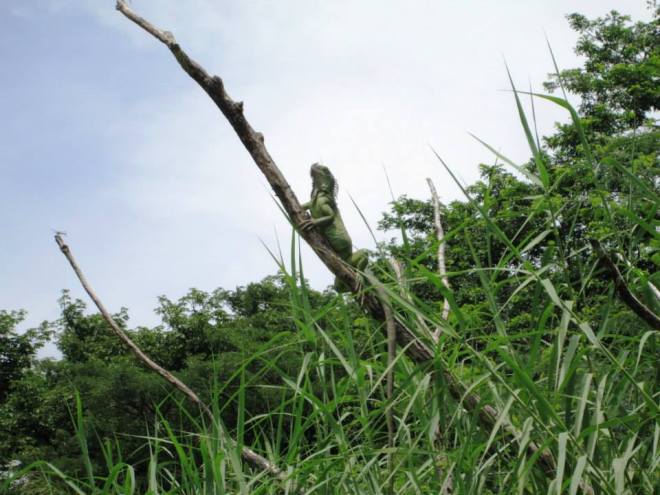
 I have always loved diving. I’m never happier than when I’m descending into the deep, encased in varying thicknesses of neoprene with plastic paddles attached to my feet and a mask that makes the remaining space on my face look like I have a ducks mouth. It’s the weightlessness, the beauty, the unknown and the silence that hypnotizes many a person into this wonderful sport. Go on, try it, you’ll never look back. I decided to become a dive professional when I was 22, and it took me 7 years to get round to it. So I signed up to do a Dive Master Internship with
I have always loved diving. I’m never happier than when I’m descending into the deep, encased in varying thicknesses of neoprene with plastic paddles attached to my feet and a mask that makes the remaining space on my face look like I have a ducks mouth. It’s the weightlessness, the beauty, the unknown and the silence that hypnotizes many a person into this wonderful sport. Go on, try it, you’ll never look back. I decided to become a dive professional when I was 22, and it took me 7 years to get round to it. So I signed up to do a Dive Master Internship with 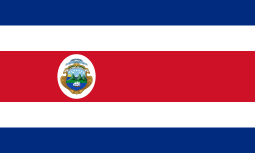 Many people ask how I knew where to go. I didn’t. I liked the sound of Central America and knew that I wanted to go to this region of the world ever since little Sophie spoke of Panama in the children’s film ‘The BFG’ in my childhood. It sounded so exotic and far away to my 6 year old ears and something must have stuck. I Googled dive centres and RCD in Costa Rica looked the best. It was that simple.
Many people ask how I knew where to go. I didn’t. I liked the sound of Central America and knew that I wanted to go to this region of the world ever since little Sophie spoke of Panama in the children’s film ‘The BFG’ in my childhood. It sounded so exotic and far away to my 6 year old ears and something must have stuck. I Googled dive centres and RCD in Costa Rica looked the best. It was that simple.